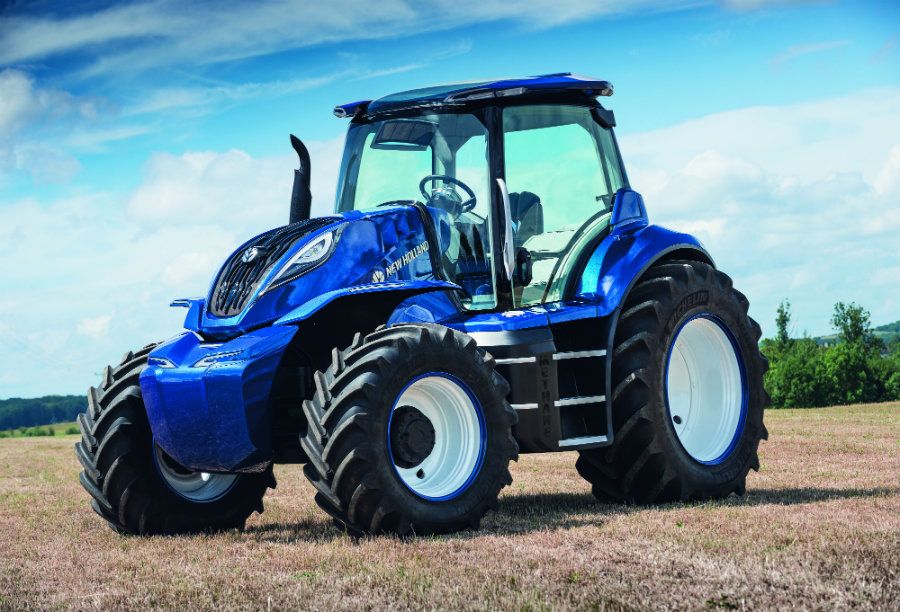
Pressure on farmers is coming from two different sources, says Richard Tobin, the CEO of industrial equipment manufacturer CNH Industrial. “On the one hand there is government regulation in the shape of CO2 reduction targets, while on the other hand grocery stores and food producers are putting the same kind of pressure on their own supply chains to reduce their emissions.”
To help farmers respond to these trends, in recent years CNH Industrial has focused its research and development spending on agricultural equipment that is powered not by diesel but by various forms of gas. The company’s FPT Industrial brand has developed industrial engines running on Compressed Natural Gas (CNG) and Liquefied Natural Gas (LNG) which are currently used in thousands of public buses and trucks across Europe and beyond.
As the leading company in its sector for the seventh consecutive year, according to the Dow Jones Sustainability Index, CNH Industrial takes its responsibility to the environment and people seriously, and recognizes that doing so is good for business.
“When running on biomethane, CO2 emissions are reduced to virtually zero.”
Richard Tobin, CEO, CNH Industrial.
In August this year, the company took its expertise in gas-powered engines in a bold new direction that could transform the way in which farmers consume energy. Its New Holland Agriculture brand unveiled an innovative concept tractor powered entirely by biomethane, a fuel that is produced from a farmer’s own crops and from agricultural waste, alongside waste from supermarkets and the food industry.

The tractor’s performance is identical to that of a conventional diesel-powered engine, with the same torque and horsepower, whilst delivering ultra-low emissions. “As biomethane combustion produces almost no CO2, use of the technology results in an 80% reduction in polluting emissions. As well as reducing greenhouse gas directly from tractors, the use of biomethane could revolutionize the economics of farming,” Tobin explains.
Because biomethane is produced from raw materials already possessed by farmers, farms can eliminate their dependence on acquiring fuels from third parties and reduce their exposure to fluctuating oil prices.
Furthermore, farmers who invest in their own biomethane production units, or “biodigesters,” are able to use the gas for farm power and heating, sell it to other farmers, or generate electricity to feed into the national grid. Agribusinesses using biomethane would not only be fuel sufficient, but also energy sufficient.
“Compared with buying in diesel, farmers would achieve savings in running costs of 10 to 30%,” Tobin remarks. “Biomethane also creates a closed loop where the farmer can generate all of his own power using the waste products of the farm itself.”
As well as the innovations contained in its powertrain, the New Holland concept vehicle also incorporates “precision farming” technologies, enabling it to steer itself along rows in the field, and elements of autonomous technology, such as the automatic detection of obstacles. In 10 years, Tobin predicts, tractors may not even need to have a driver at all, using precision farming techniques to operate day and night.
In order to achieve the emissions targets set in the Paris Agreement, Tobin says the agricultural sector will need to deploy a combination of alternative fuels, autonomous driving and artificial intelligence: “With these technologies we have the opportunity to open up new horizons for future farming”![]()









